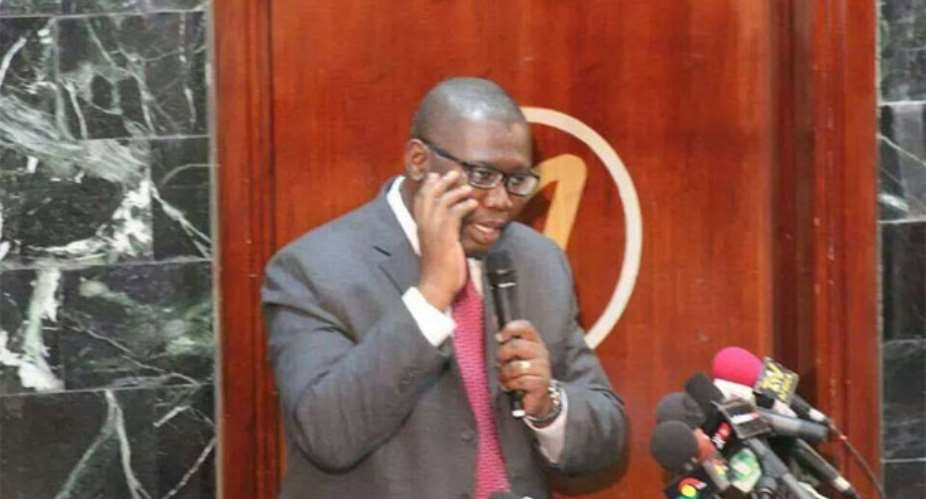The Petroleum Commission has organized the maiden edition of an annual Local Content Procurement Conference aimed at encouraging many Ghanaians to participate in the upstream petroleum sector.
The conference, which was held yesterday at the African Regent Hotel in Accra, was aimed at positioning local businesses to adequately prepare and bid for contracts in the upstream petroleum industry.
It was aimed at providing Ghanaian players interested in doing business in the sector with information on the procurement needs of major International Oil Companies (IOCs), as well contract and procurement opportunities in the industry for 2018 and possibly 2019.
The conference was also aimed at bridging the information gap between Ghanaian companies and their foreign counterparts by creating a platform where the IOCs operating in the country's upstream petroleum sector such as Springfield could present their contracts and procurement plans for 2018.
Acting Chief Executive Officer (CEO) of Petroleum Commission, Egbert Faibille Jnr., in a speech, explained that the conference was in fulfillment of the Commission's commitment to ensuring transparency in the upstream oil and gas tender process and promoting participation of indigenous Ghanaian companies in the provision of goods and services in the sector.
According to him, the conference was also in furtherance of the Commission's mandate under Regulation 40 of the Petroleum (Local Content and Local Participation) Regulations, 2013, L.I. 2240, which entreats the Commission to undertake public activities to educate contractors, sub-contractors, licensees and other allied entities, the public and industry stakeholders on the local content policy and philosophy.
He indicated that significant benefit could be derived from enhancing in-country value retention through participation of Ghanaians and Ghanaian businesses.
“Typical of any new producer, the industry in Ghana is saddled with obvious challenges in respect of technology and know-how, human resource, and finance. These challenges could be surmounted by enhancing capacity of Ghanaian companies through transparent participation in tenders and execution of contracts,” he added.
To this end, the acting CEO explained that the Commission has taken a strategic decision to promote development of indigenous capabilities and the use of local capacity in the exploitation of the Ghana's petroleum resources by creating a conducive environment for indigenous Ghanaian companies to succeed and address the problem of information asymmetry, which limits the competitiveness of indigenous Ghanaian firms.
By Melvin Tarlue





 'Kill whoever will rig Ejisu by-election' – Independent Candidate supporters inv...
'Kill whoever will rig Ejisu by-election' – Independent Candidate supporters inv...
 Ashanti Region: ‘Apologize to me for claiming I owe electricity bills else... – ...
Ashanti Region: ‘Apologize to me for claiming I owe electricity bills else... – ...
 Ghana is a mess; citizens will stand for their party even if they’re dying — Kof...
Ghana is a mess; citizens will stand for their party even if they’re dying — Kof...
 Internet shutdown an abuse of human rights — CSOs to gov't
Internet shutdown an abuse of human rights — CSOs to gov't
 Free SHS policy: Eating Tom Brown in the morning, afternoon, evening will be a t...
Free SHS policy: Eating Tom Brown in the morning, afternoon, evening will be a t...
 Dumsor: A British energy expert 'lied' Ghanaians, causing us to abandon energy p...
Dumsor: A British energy expert 'lied' Ghanaians, causing us to abandon energy p...
 What a speech! — Imani Africa boss reacts to Prof. Opoku Agyemang’s presentation
What a speech! — Imani Africa boss reacts to Prof. Opoku Agyemang’s presentation
 Dumsor: Tell us the truth — Atik Mohammed to ECG
Dumsor: Tell us the truth — Atik Mohammed to ECG
 Dumsor: Don't rush to demand timetable; the problem may be temporary — Atik Moha...
Dumsor: Don't rush to demand timetable; the problem may be temporary — Atik Moha...
 Space X Starlink’s satellite broadband approved in Ghana — NCA
Space X Starlink’s satellite broadband approved in Ghana — NCA
